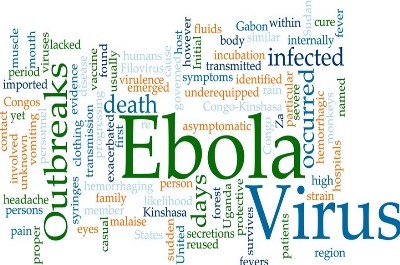New WHO “Safe and Dignified Burial” Protocol Key to Reducing Ebola Transmission
7 November 2014 ¦ GENEVA: A new WHO protocol for safe and dignified burial of people who die from Ebola virus disease emphasizes inclusion of family members and encouraging religious rites as an essential part of safe burials.
“At least 20% of new Ebola infections occur during burials of Ebola deceased patients. By building trust and respect between burial teams, bereaved families and religious groups, we are building trust and safety in the response itself.” says Dr. Pierre Formenty, one of WHO’s top Ebola experts. “Introducing components such as inviting the family to be involved in digging the grave and offering options for dry ablution and shrouding will make a significant difference in curbing Ebola transmission.”
Ebola infections occur during burials when family and community members perform religious rites that require directly touching or washing the body, which still contains high levels of Ebola virus; and when family members distribute personal property of the loved one, which may be infected with the virus.
Developed by an interdisciplinary team at WHO, in partnership with the International Federation of Red Cross and Red Crescent Societies (IFRC) and faith-based organizations including World Council of Churches, Islamic Relief, Caritas Internationalis and World Vision, this updated protocol outlines step-by-step processes for safe and dignified burials. The protocol encourages inclusion of family and local clergy in the planning and preparation of the burial, as well as at the burial event itself, giving specific instructions for Muslim and Christian burials.
“We are becoming known for ‘dead body management’, but we do not ‘manage’ dead bodies. We safely, respectfully and in a dignified manner, accompany our deceased fellow human beings and help to prepare them, in accordance with their cultures, for their last resting places. It is in this spirit that our volunteers carry out their difficult work” says Elhadj As Sy, Secretary General, IFRC.
“It is clear from Islamic juristic ruling that the necessity of religious washing of the body before burial of patients who die from Ebola is over-ruled,” says Rehanah Sadiq, a Muslim chaplain with University Hospitals Birmingham NHS Foundation Trust who served as consultant to WHO on the protocol. “However, it is vital to help bereaved families grieve and find closure by ensuring that sacred rites, such as performing a dry ablution, shrouding the body, and praying over the deceased are represented in Muslim funerals. Providing safe alternatives for families to maintain deeply-cherished practices helps them be part of the decision-making process, which is critical particularly during a time when they may be feeling helpless.
Giving the family an opportunity to view the body of the deceased, ensuring that the grave is appropriately labelled, and allowing religious leaders to offer prayers and family members the option to throw the first soil – these are important incentives for encouraging families to continue to find strength in their faith, and to keep other family members safe from becoming infected,” said Rev. Msgr. Robert J. Vitillo, Head of Delegation, Caritas Internationalis.
A team of medical anthropologists also contributed meaningful, safe alternatives for touching and bathing dead bodies, developed from research into the cultural significance and values of burial practices in affected countries. The research included consultations with religious leaders in affected countries to define what is meant by “dignified burial” in both the Muslim and Christian context.
The protocol also includes ways for Ebola burial teams to carry out their work safely while respecting family sensitivities. These include abstaining from wearing personal protective equipment (PPE) when first meeting with the family, and asking the family if there are specific requests for managing the burial and personal effects of the deceased. As the protocol is applied in affected countries, feedback from religious leaders, communities and people managing burials will be used to update and improve the protocol.
The link to Safe and Dignified Burial Protocol: http://www.who.int/csr/resources/publications/ebola/safe-burial-protocol/en/
Stay with Sierra Express Media, for your trusted place in news!
© 2014, https:. All rights reserved.





